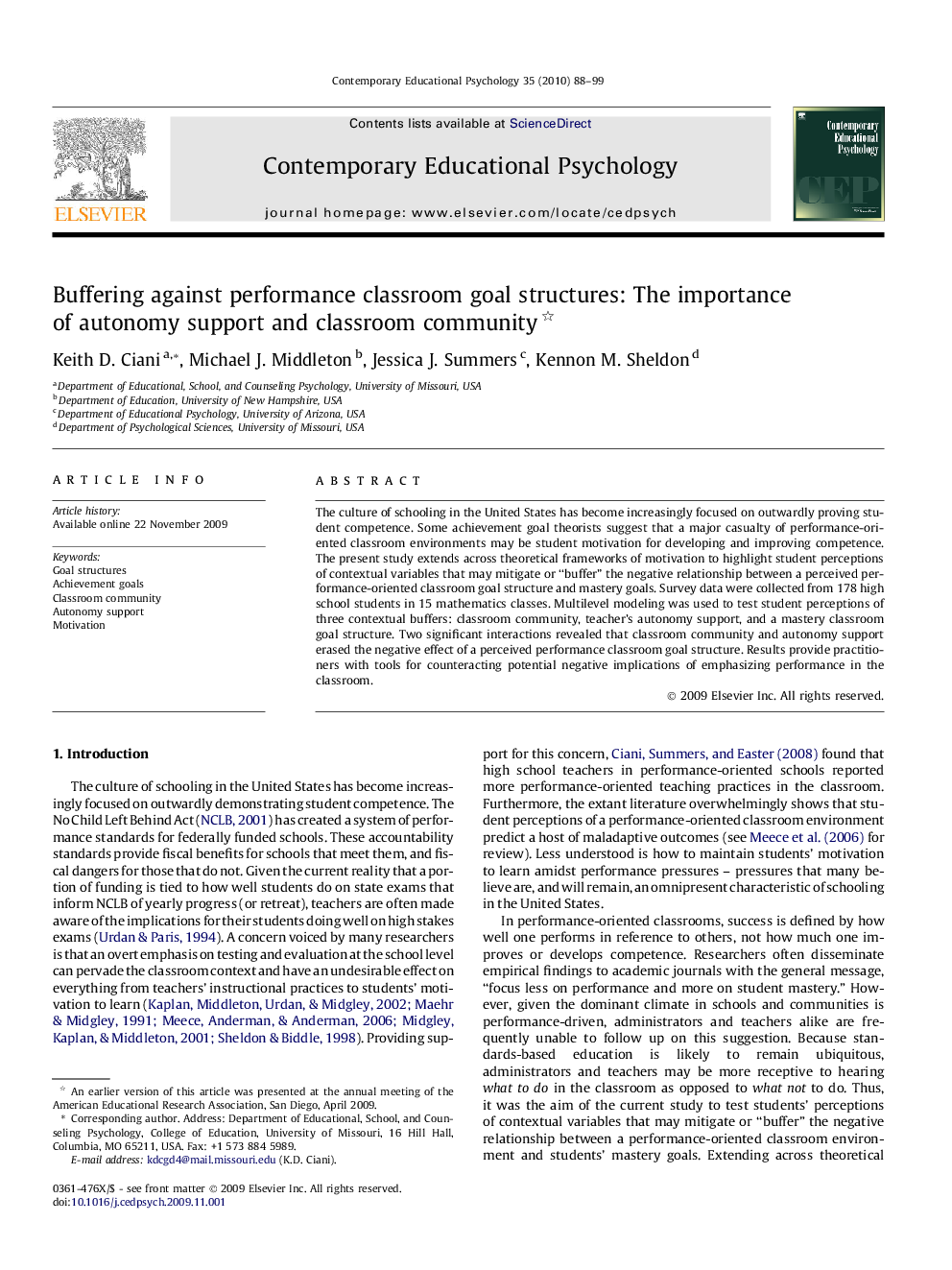| Article ID | Journal | Published Year | Pages | File Type |
|---|---|---|---|---|
| 352797 | Contemporary Educational Psychology | 2010 | 12 Pages |
The culture of schooling in the United States has become increasingly focused on outwardly proving student competence. Some achievement goal theorists suggest that a major casualty of performance-oriented classroom environments may be student motivation for developing and improving competence. The present study extends across theoretical frameworks of motivation to highlight student perceptions of contextual variables that may mitigate or “buffer” the negative relationship between a perceived performance-oriented classroom goal structure and mastery goals. Survey data were collected from 178 high school students in 15 mathematics classes. Multilevel modeling was used to test student perceptions of three contextual buffers: classroom community, teacher’s autonomy support, and a mastery classroom goal structure. Two significant interactions revealed that classroom community and autonomy support erased the negative effect of a perceived performance classroom goal structure. Results provide practitioners with tools for counteracting potential negative implications of emphasizing performance in the classroom.
